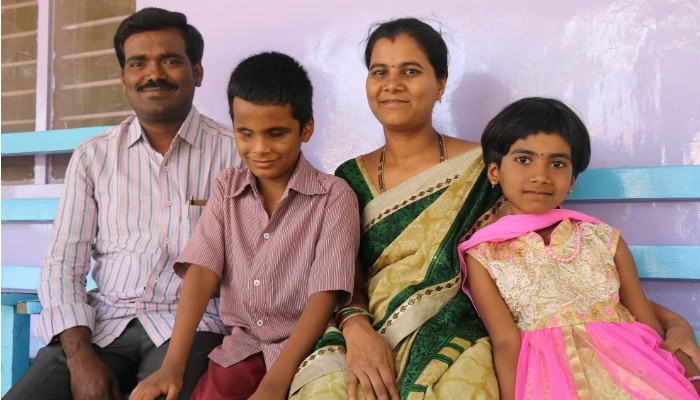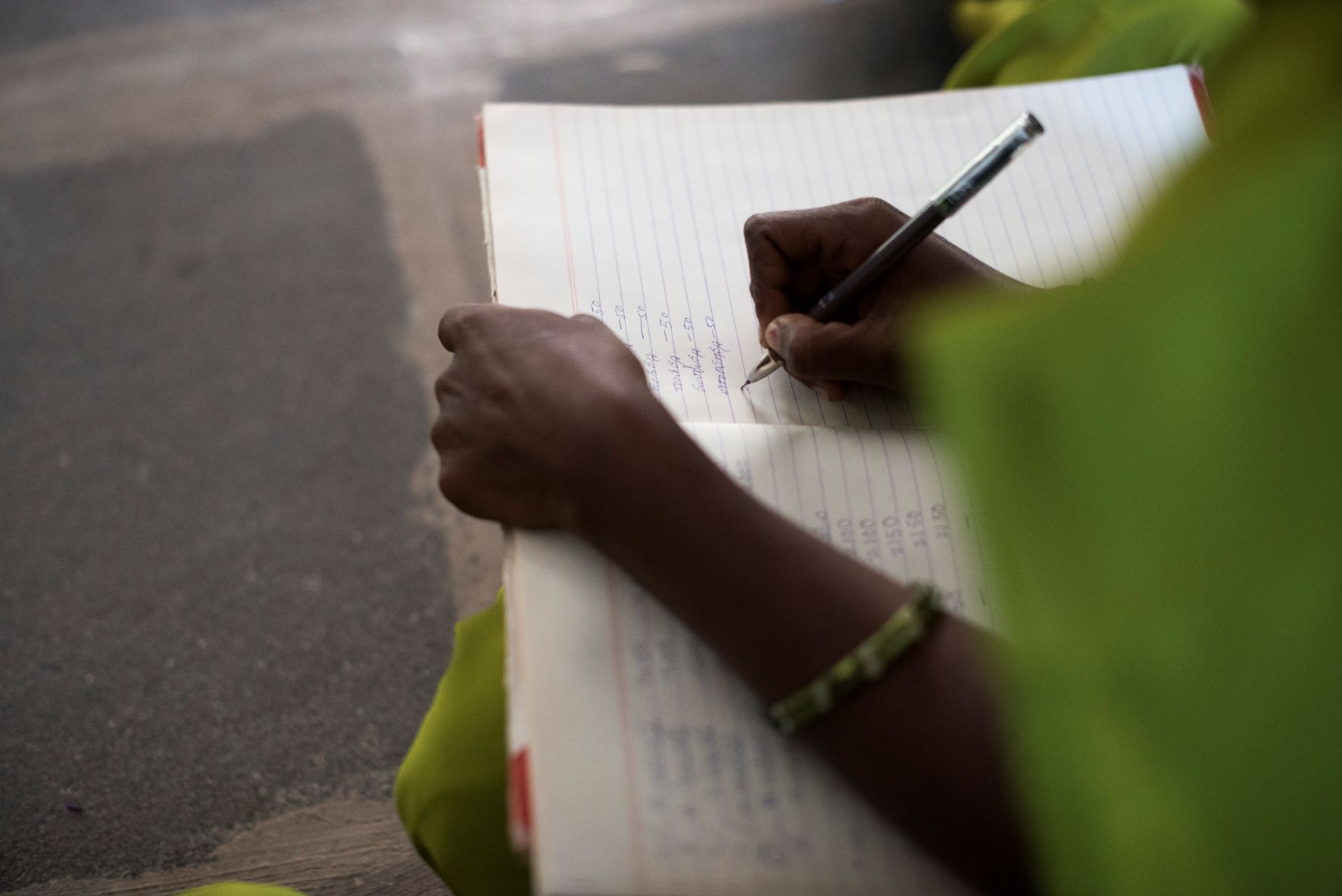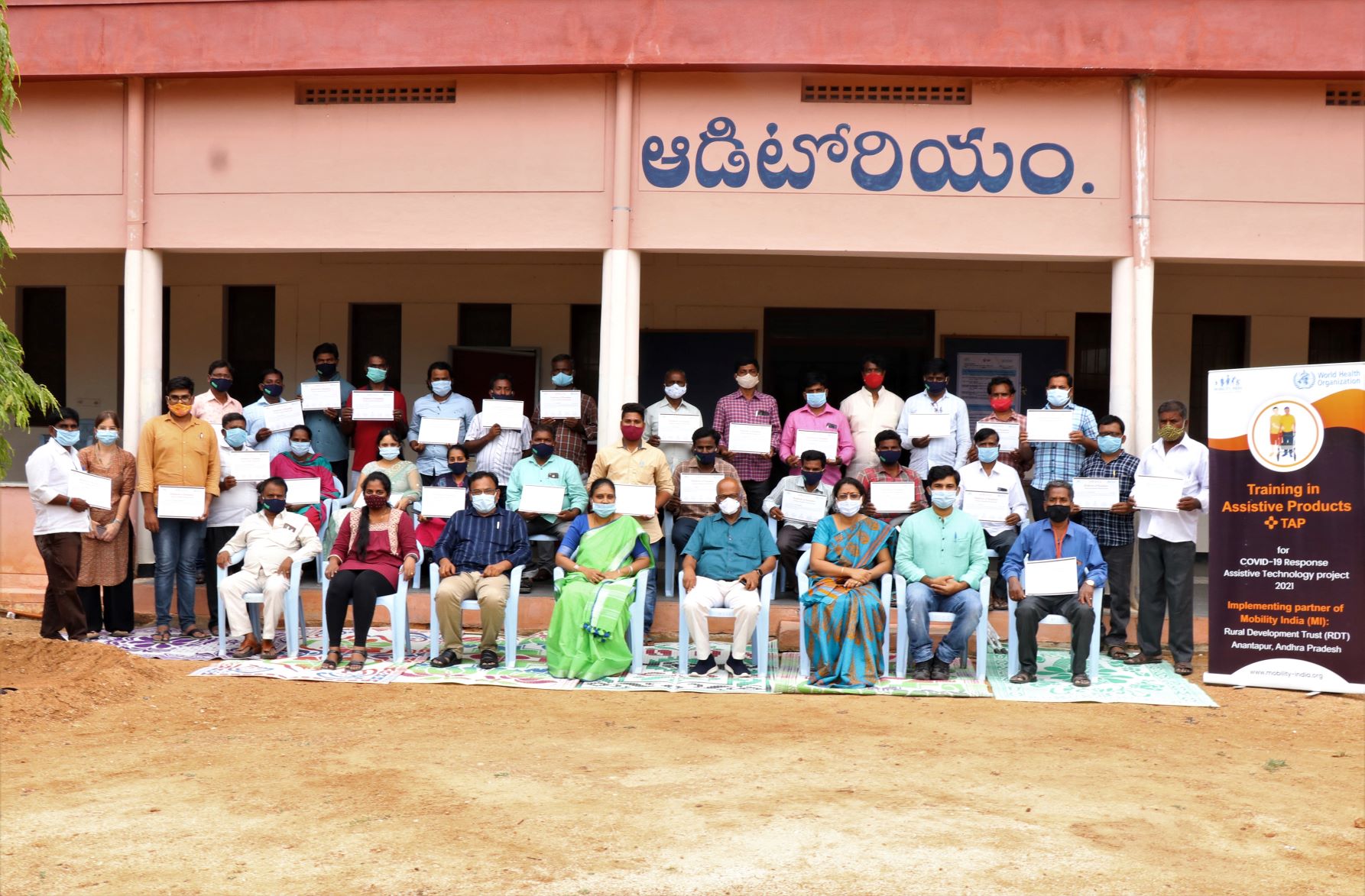Home > Blogs
Meehanski: “My disability hasn’t stopped me from making my dreams come true”
Meehanski defines herself as a feisty and stubborn woman, but above all independent and happy. Despite her visual impairment and the many barriers life has put in front of her, she has never given up. “Since I was little, I had a dream: to be autonomous and help others to be as well. I think I have achieved it and I want to continue living my life to the fullest.” Meehanski speaks five languages (English, Kanara, Telugu, Tamil, and Hindi), and learned karate when she was young, although she says she hasn’t practiced it for a long time. Today she is part of the teaching team at the Rural Development Trust (RDT) Kadiri Inclusive Primary School.
1. You were born in Bangalore, a large city with more than 12 million inhabitants and 200 km from Anantapur. How did you come to RDT? And Kadiri?
Before joining the RDT, I worked for eight years in an NGO in the field of people with disabilities. However, when I asked for a promotion to the Field Coordinator, they refused to give it to me. Not because they thought I couldn’t do it, but because I was a woman with a disability. I resigned and decided to start a new stage of my life. After several job interviews, I chose RDT. They had told me that here they promoted the empowerment of women and their role in positions of power.
2. Was that the first time that because you were a woman and had a disability you were denied an opportunity? What support have you received from your parents for studying or living on your own?
Unfortunately, no. A few years ago I had the opportunity to work as a Braille instructor for the Government, but I couldn’t accept it due to the total opposition of my parents. They didn’t want me to go far away because they were older, they feared that something would happen to them and that it would be very difficult for me to take care of them. In India, daughters and daughters-in-law are expected to take care of the elderly. Male children are totally exempt from that responsibility. Again, I felt frustrated.
3. How is your life in Kadiri?
Here I am happy. On a professional level, I have always felt like one of the school’s teaching team, and on a personal level as well. A few years ago, I got married, also to a visually impaired RDT teacher. We have an 11-year-old boy and a 13-year-old daughter. They are both wonderful. I can say without fear that I enjoy life.
4. What kind of education do these girls and boys receive?
Many of the children with disabilities who come to this school come from very hostile backgrounds, where they have never received a kind word. For me, they are like a blank book, since they are marked by a specific childhood and particular experiences. Therefore, the way of teaching them must be adapted to them, while I learn from them. None of them is the same as another, and that is where their riches lie.
5. What memories do you have of your childhood?
I have many, but not very good ones. At birth, like many Indian girls, I was accepted neither as a daughter nor as a member of the family. My parents never loved me. Their only wish was to get rid of me and leave me as soon as possible. Especially my mother. I grew up with my uncles, who did not understand my blindness. Such was their ignorance that they came to ask a seer for advice. Fortunately, he predicted a good future for me and also predicted that I would end up taking care of my parents. Following this prediction, my mother accepted me and allowed me to go to school. Sadly, they didn’t even let me in because I was blind. They discriminated against me and told me: “Get out of here, you are blind, you will never learn anything “. Despite everything, I did not give up. I stayed on the porch of the school to listen to the teacher’s lectures. Finally, against my father’s wishes, both my mother and my uncle decided to send me to a school for the visually impaired in Bangalore. It was there that I put all my enthusiasm and managed to be the first in class until seventh grade. In eighth grade, my grades dropped considerably due to the family responsibilities I had to take on. When I finished tenth grade, even though my grades were still good, my parents again opposed me from continuing to study. They thought that I would never have a chance and even promised me that if I stayed with them, I would always be safe.
6. How did you react at that moment?
I was disappointed, but with my courage, I convinced them to let me finish my studies. At that moment, I decided that I would work so that no boy or girl would ever be marginalized or suffer similar situations.
7. In rural India, people with disabilities face strong discrimination and stigma. How has this been for you?
My disability has never limited me but on the contrary, it has been a great challenge to face every day. Despite suffering bad experiences, I have never given up and I am proud of it. I have always had the conviction that I would be able to be independent. I firmly believe that anyone who wants something from the heart, can get it. I feel like a brave woman.
If you would like to support RDT primary Education Schools visit: https://vffusa.networkforgood.com/projects/170770-spark-a-life-this-diwali

Visually impaired student becomes a Telugu singing star
09/28/2022“When I sing, I feel invincible,” says Sreesanth Naik. At the young age of 10, he has ...
READ MORE
Malleswari’s Story: How Education Helps Breaks the Cycle of Poverty
12/22/2021Born in a village located in the deep forest of Nallamala in the Indian state of Andhra Pr...
READ MORE
RDT and Mobility India Help People with Disabilities Fulfill their Potential
12/02/2021People with disabilities are among the most vulnerable groups in Indian society. They are ...
READ MORESupport our work to help individuals and communities affected by COVID-19
Would you like to know how we use the funds?LEARN MORE
 September 29, 2022
September 29, 2022